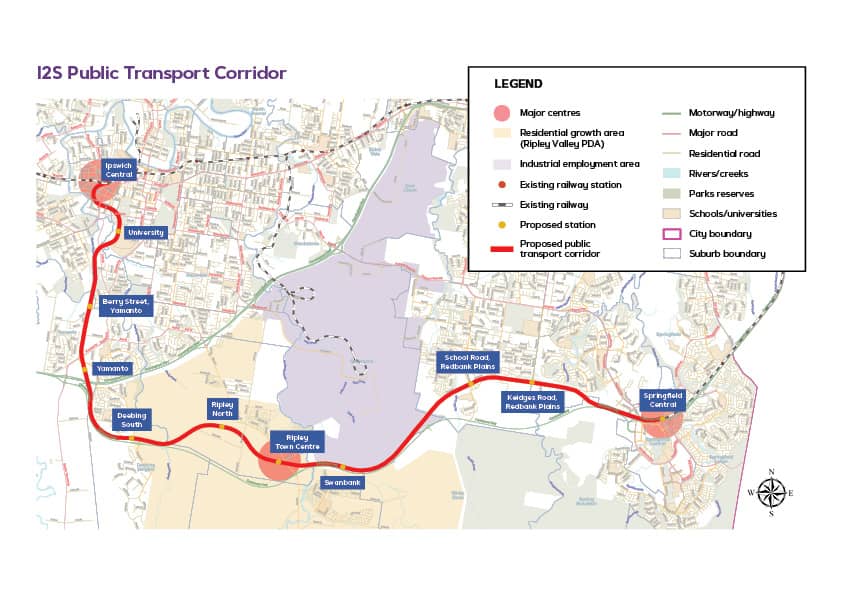Ipswich City Council has voted to make improving the region’s bus network – particularly the critical link between Ipswich and Springfield – a “regionally significant” advocacy priority.
Council’s Growth, Infrastructure and Waste Committee unanimously adopted the recommendation at its September 15 meeting, and is now urging the Queensland Government to consider funding the bus network in its next budget.
Committee Chair and Ipswich Mayor Teresa Harding said the Council will amplify its calls for state funding for improved bus services along the Ipswich to Springfield Central Public Transport Corridor, also known as “I2S”, while it waits for the development of a rail network extension between the cities.
“The ultimate goal is the development of the I2S corridor, and – while this project is now progressing – its completion is still years away,” Ms Harding said.
By 2040, the population of the area is expected to jump from a quarter of a million to around half a million, and yet only one in every 10 residents currently uses public transport.
“We know that 70 per cent of Ipswich’s population growth is taking place in the corridor between Ipswich and Springfield Central.
“We have this terrific opportunity to get more people onto public transport, so they do become a one-car or zero-car family.”
“If we don’t put in the public transport now, if we don’t service the growth that is happening in those fast-growing areas as well as our established areas, people will just go to cars.”
Earlier this year, Transport and Main Roads (TMR) confirmed its TransLink Division was in consultation with the Council – and the public – to prepare for a future passenger rail line extension along the Ipswich to Springfield corridor, while it also awaits funding from the state government.
“The Ipswich to Springfield corridor is a key part of the Queensland Government’s long-term vision for the South East Queensland rail network,” TMR announced on its website in July.
The funding for the rail extension via the suburbs of Ripley will likely come from the $1.8 billion South East Queensland City Deal, an infrastructure package the Queensland Government announced in March.
“Community interest in the proposed Ipswich to Springfield corridor remains high. TMR will continue to work with Ipswich City Council to ensure planning reflects and responds to community needs.”

Consequently, the development could take more than a decade.
Meanwhile, Division 2 Councillor Paul Tully – the Growth, Infrastructure and Waste Committee Deputy Chairperson – warned that a lack of investment in public transport now would have long-term consequences.
“The risk of not servicing both growth and established areas with an appropriate level of public transport is that these communities establish habits or patterns of car usage, which is difficult to break once established, leading to greater congestion on roads, pollution as well as various social-economic issues.”
Besides the Ipswich to Springfield Central Public Transport Corridor (I2S), the Council’s current list of regionally significant projects includes: Ebenezer Regional Industrial Area; Ipswich Central Second River Crossing; North Ipswich Sport and Entertainment Precinct; Waste and Circular Economy Transformation; and Critical and Enabling Infrastructure.
For more information, visit the Council’s advocacy website here, or view TMR’s current projects at www.tmr.qld.gov.au.
